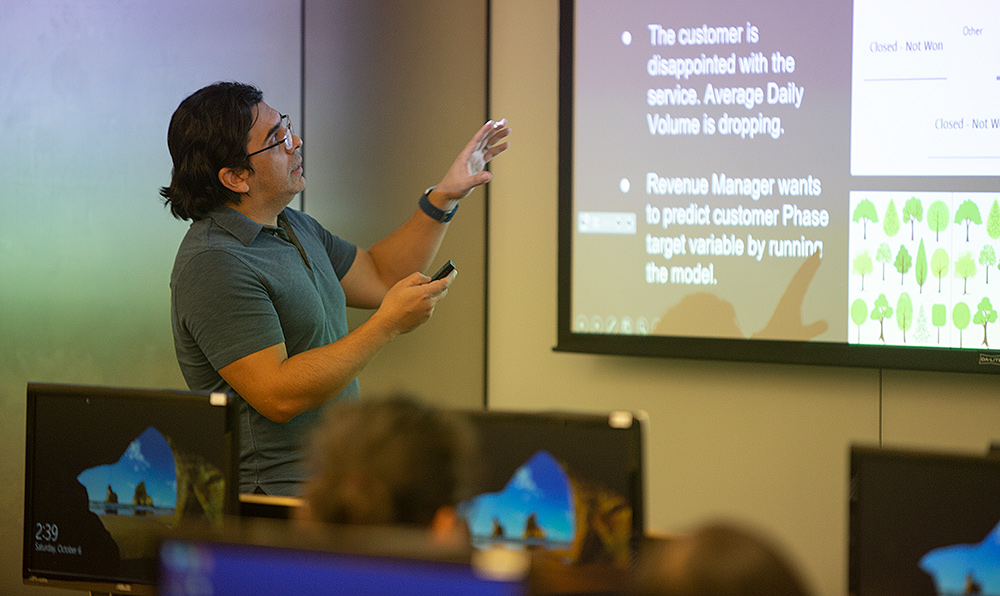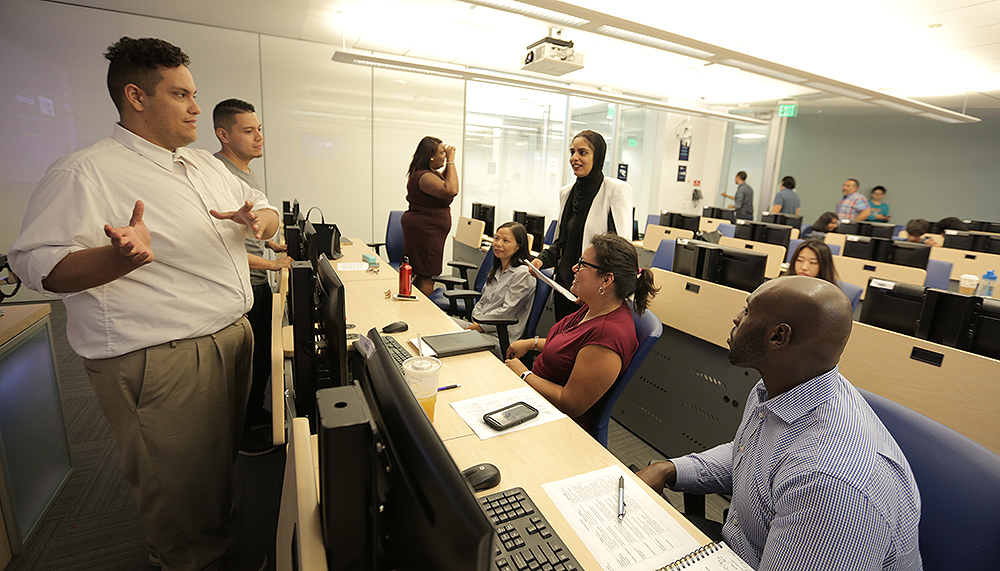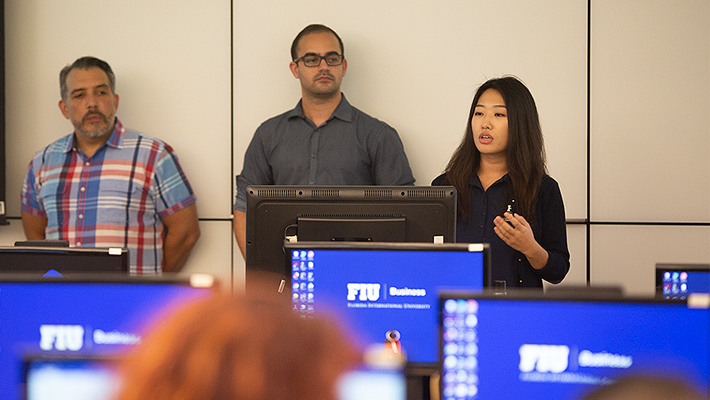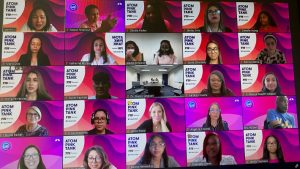
As volumes of information are produced in the course of business every day, understanding patterns and trends behind data is an essential component of business success.
The Latin America and Caribbean division of logistics giant FedEx Express wanted to explore how new insights into data could help them build customer retention strategies. They also hoped to engage with current business analytics students, to learn more about their insights and help them build real-world experience.
They turned to one organization to accomplish all these goals: FIU College of Business’ ATOM Think Tank.
ATOM, which stands for Analytics, Technology and Operations Management, is a technology consulting practice that helps organizations in their efforts to manage and interpret data. It also gives students, guided and mentored by faculty experts, the opportunity to analyze data and find solutions to business challenges.
Graduate students take on the ATOM data challenge as they finish 14 months of coursework for the FIU’s Master of Science in Information Systems. For eight weeks, under the guidance of Assistant Professor Lina Bouayad, students analyzed data sets and provided business recommendations on five separate FedEx Express challenges.
The ATOM data challenge also comes with a real-world component. Students present results of their data analysis, and make a case for their recommendations. On October 6, 2018, students did just that, presenting to Adriana Murillo, Customer Analytics Manager and Kevin Cyriaque, Senior Business Analyst at FedEx Express Latin America and Caribbean division.
Students discovered that unlike examples of data they’ve seen in the classroom, real data isn’t clean or simple, and doesn’t yield obvious solutions. It took patience to keep looking for patterns and draw up recommendations. Murillo and Cyriaque not only gave students input on the data findings they presented, but also shared tips on how to present with confidence and support their recommendations.
Karlene Cousins, founding director of ATOM who chairs the Information Systems and Business Analytics department, noted that the experience was a proving point for the tools students had learned and practiced all year, and a key turning point in the transition from students to full-fledged business analytics professionals.






